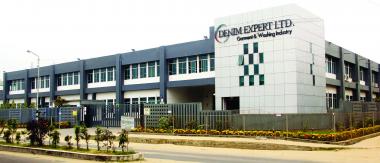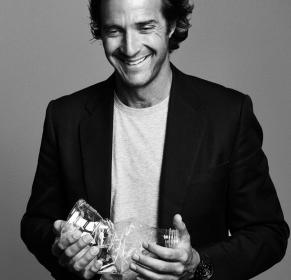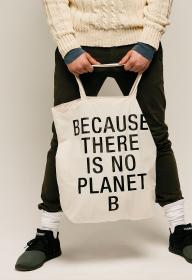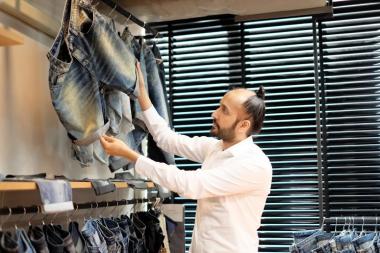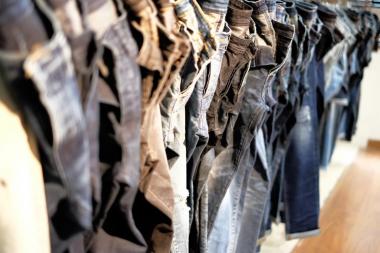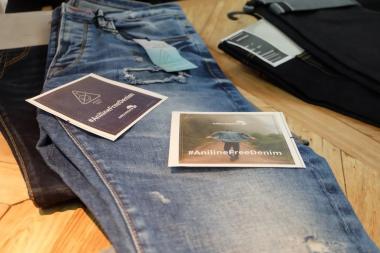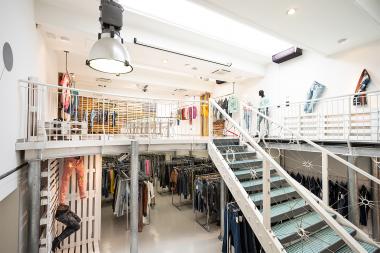International Cotton Conference Bremen 2020: keynotes
Focus on Sustainability and Climate Change
Passion for Cotton: The 35th International Cotton Conference Bremen starts on 25 March in the Hanseatic city’s historic Town Hall. But before subject-specific questions are discussed in depth in the individual sessions, the concise and inspiring keynotes by leading business experts from science and industry will draw attention to the current trends and challenges in the industry at the start of the conference. A large part of the presentations is shaped by the current discussion on environmental and sustainability issues and the resulting consequences for the global economy.
Climate Change and Sustainability
“Climate change - a storm in a teacup?” asks Kai Hughes, Executive Director of the International Cotton Advisory Committee, Washington D.C., USA, in a provocative speech. The aim of his presentation is to work out the challenges of climate change especially for agriculture and cotton production. This should form the basis for later discussion on concrete approaches and solutions within the cotton community.
With his lecture “The HUGO BOSS sustainability programme ... and what our customer has to do with it” Andreas Streubig, Director of Global Sustainability at Hugo Boss AG, Metzingen, Germany, rolls up the textile value chain from a different angle, starting at the consumer level. As a representative of a premium brand for women's and men's clothing, Streubig discusses sustainability as a strategic element of the corporate strategy and provides information on how elements of the strategy are being implemented at Hugo Boss.
Rüdiger Senft, Head of Sustainability at Commerzbank, Frankfurt am Main, Germany, looks at the changing role of banks in financing the cotton market. In addition to a general introduction to the topic of sustainability and banking regulation, Senft's presentation deals with the financing of the cotton trade from a social and ecological point of view.
The opening session on 25 March is hosted by Bill Ballenden, founder and owner of Dragontree, Swindon, UK, an online auction platform for the cotton trade. As a former cotton manager for Louis Dreyfus in Europe and Asia, Bill Ballenden has many years of experience in the industry.
Cross-Cutting Issues: Digitalisation, Gender, Value Chains
The subsequent session in the conference programme with the headline “A Wider View” is devoted to currently defining trends and important cross-cutting issues in the industry. This goes far beyond classic cotton themes.
A lecture by Mark Messura, Senior Vice President, Global Supply Chain Marketing for Cotton Incorporated, Cary, North Carolina, deals with the role of cotton in an increasingly digitally controlled supply chain. Significant keywords here are faster delivery times, vertical integration, transparency and traceability.
The presentation by Roger Gilmartin, Managing Director of Tri-Blend Consulting, Charlotte, USA, entitled “The secret recipe for timely, cost-optimised and high-quality cotton clothing” promises exciting and enlightening insights. Tri-Blend Consulting conducts studies on the performance of different cotton varieties during the entire consumption process to the finished yarn and evaluates them from an economic point of view.
Amy Jackson, from the Better Cotton Initiative, London, UK, presents ICA Liverpool's “Women in Cotton” initiative. With this commitment, the initiative aims to increase the influence of women in the cotton industry and give them a stronger voice, for example by building networks in cooperation.
Navdeep Singh Sodhi, International Strategic Management Consultant at the Gherzi Textile Organisation, Switzerland, gives an insight into the current development of the value chain for cotton, textiles and clothing in Africa. Looking ahead to the coming decades, also in view of population growth, Africa is seen as having a high potential for building economic structures to improve income and prosperity.
Thomas Schneider, Professor at the University of Applied Sciences in Berlin and active in the field of production planning and control, textile materials and materials testing will host the session. A leading light in his field, Thomas Schneider has more than 30 years of experience in scientific and application-oriented research in the textile and fibre sector, including at the Fibre Institute Bremen e.V.
International Cotton Conference
Bremer Baumwollbörse












